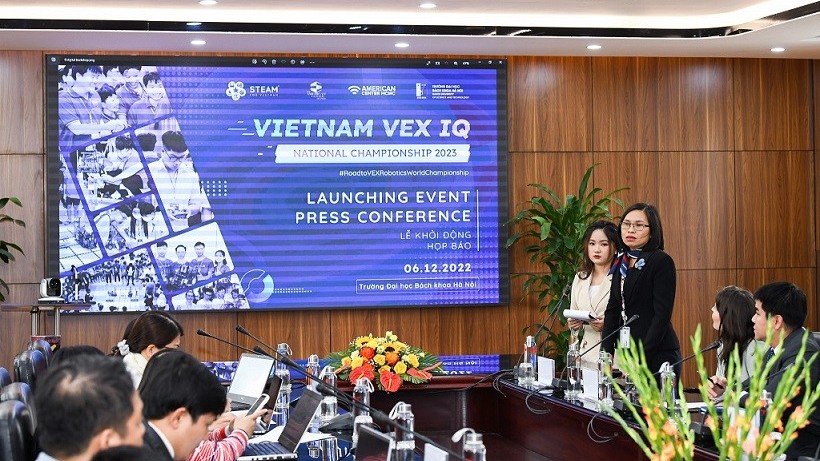
Professor, Dr of Chemistry Le Minh Thang: There will be no limit for women in doing scientific research, blazes new trails
Latest
 |
| Professor, Dr of Chemistry Le Minh Thang: There will be no limit for women in doing scientific research, blazes new trails. (Photo: Vnexpress) |
When there is enough love and passion, there will be no limit for women in doing scientific research, said Professor, Dr of Chemistry Le Minh Thang, who has spent two decades teaching and studying petrochemical technology.
Thang, a lecturer at the Department of Organic and Petrochemical Technology of the School of Chemical Engineering (SCE) under the Hanoi University of Science and Technology (HUST), has published 127 scientific articles and been granted two patents and one utility solution.
She has long pursued studies involving catalysts for the treatment of exhaust gases, photocatalysis for the treatment of waste water, and organic synthesis processes, with her researched catalysts being completed for widespread commercialisation and environmental protection.
The professor's research on catalytic treatment of environmental emissions has been awarded an international award by the Hitachi Global Foundation in 2021, which honours those with significant contributions to society and sustainable development in Asia.
Named as the youngest associate professor in Vietnam in 2009 and recognised as a professor in 2019, Thang obtained the Kovalevskaia Prize 2022 in March this year. The award aims to honour female scientific groups and individuals with outstanding achievements in scientific research and application.
She said one of the reasons behind her application for the Kovalevskaia Prize was her desire for the scientific research works of HUST’s female scientists to be recognised, thereby encouraging the group’s participation in bringing their research projects closer to society and serving the community.
According to the scientist, in the engineering area, the number of women is often much less than that of men. Meanwhile, some employers are in favour of hiring male staff, as they seem to be more suitable for heavy and difficult technical jobs. However, she said it is possible for women to have the same or even better professional qualifications than men.
Thang expressed her wish that more favourable conditions and encouragement will be offered for female scientists in terms of policy, infrastructure, and equipment.

















